The Best Construction Bidding Software
Construction bidding software helps general and subcontractors create bids faster and win more jobs. After testing the top systems, we reviewed our favorites below.
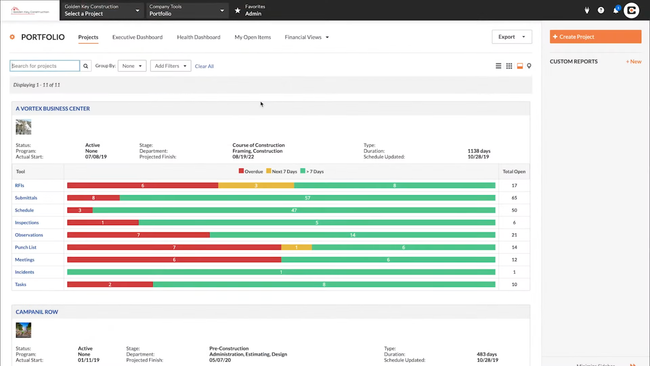
- Automates emails, document sharing, and photo archiving
- Customizable reporting
- Integration with AutoCAD and Revit
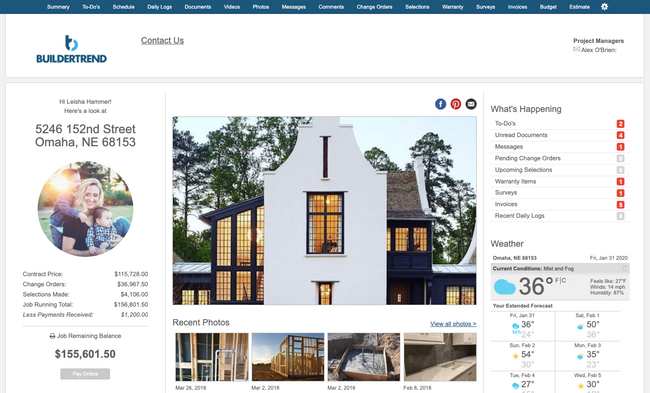
- User-friendly interface and mobile access
- Homeowner portal for customer service
- Strong filtering and reporting tools
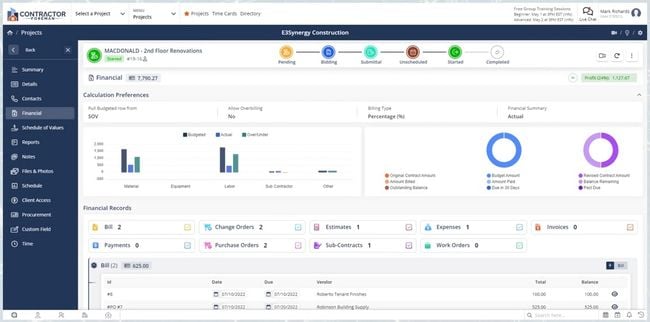
- 100 day money back guarantee
- Integrates with 50+ other systems
- Residential and commercial
The best construction bidding software helps track proposals, create estimates, and bridge communication between general contractors and subcontractors. Using our advanced review methodology, we ranked the most popular systems on the market below.
- Procore: Best Overall
- Buildertrend: Best for Residential Construction
- Contractor Foreman: Best for Small General Contractors
- PlanHub: Best for Subcontractors
- Knowify: Best for Trade Contractors
- Clear Estimates: Best for Remodelers
- STACK: Best Takeoff Tools
1 Procore - Best Overall
Why We Chose It: Procore tops our list for its rich feature set, catering to several different construction industries. We particularly liked Procore’s built-in templates, making it efficient for general contractors to assemble bid packages. Its Planroom feature can directly store details like drawings and specifications within packages. From there, companies can convert awarded bids into subcontracts or purchase orders, with line-item breakdowns for the schedule of values.
We also like Procore’s search functionality for finding bids. It allows companies to search based on trade, cost codes, and location. This makes the system flexible enough for commercial companies to find specialty contractors, like HVAC or roofing, for specific jobs in a large project. Its flexibility and industry-leading construction management suite make it our top pick on the market.
However, we think smaller businesses might find Procore too pricey, as it comes with several comprehensive modules in addition to bidding. Unfortunately, Procore doesn’t list their pricing publicly, so you’ll need a custom quote to know exactly what you’ll pay.
2 Buildertrend - Best for Residential Construction
Why We Chose It: We like Buildertrend’s client portal feature, which is effective for residential builders. Homeowners can view daily progress updates through the portal, including videos and photos. They can also communicate directly with the construction team, make payments, and sign project documents. This is essential for homebuilders who often adhere to exact client specifications.
Buildertrend’s bidding module offers accurate estimation tools to help construction companies take only profitable jobs. Homebuilders can see predictions of key factors like quantities, expenses, and labor hours to get a close estimate of total project cost. In turn, it allows businesses to budget accordingly and stay under for more jobs. We also like its invoices feature, which includes automated reminders to collect more on-time payments.
Buildertrend’s most popular Advanced plan is $799/month and includes enhanced estimating and project management features. Because of this, it may be too pricey for small homebuilders.
3 Contractor Foreman - Best for Small General Contractors
Why We Chose It: We found Contractor Foreman best for small to mid-sized firms with 10 to 500 employees. It has a full suite of project management, estimating, and scheduling tools without the complexity or cost of larger systems. Its bid management module lets general contractors manage bids from one spot. Users can streamline the process by easily creating effective bid packages, inviting subcontractors to view them, and awarding winners. Efficiently generate purchase orders to initiate the project fast.
During our live demo of Contractor Foreman, we found its design intuitive compared to competitors. Its bid manager especially has easy-to-view dashboards for optimized task visibility. This ensures a shorter learning curve, allowing small teams to adopt its features quickly.
However, our research showed that users wish Contractor Foreman had offline capabilities, especially for the time clock function on mobile devices. If the internet connection is spotty, workers in remote job sites won’t be able to access the app. Despite this, we appreciate that Contractor Foreman offers a 30-day free trial and 100-day money-back guarantee for annual plans, starting at $49/month.
4 PlanHub - Best for Subcontractors
Why We Chose It: We like PlanHub for subcontractors because it has a large network of 32,000 general contractors to help expand their reach. Businesses can assess general contractors’ profiles to ensure they match their needs, such as location and trade, resulting in better opportunities. Conversely, subcontractors can create detailed profiles to entice GCs to reach out directly for projects, enabling two-way communication.
We also found PlanHub’s bid builder effective for subcontractors to streamline workflows. Companies can use information from past bids to autofill boxes and create offers faster without starting from scratch each time. PlanHub’s mobile app lets busy subcontractors access updates on the go with notifications of new project summaries, helping them not miss out on potential jobs. However, one downside that we found in our research is that quote deadlines can be tight, which could make companies occasionally miss out.
5 Knowify - Best for Trade Contractors
Why We Chose It: Knowify is our top choice for trade contractors, including HVAC, electrical, and roofing. The platform streamlines the creation of detailed budgets covering labor, materials, and equipment, organized by line item and project phase. We also liked how simple it was to convert a project budget into a polished bid in a few clicks, saving owners time and eliminating long manual processes.
Additionally, Knowify helps manage the financial complexities of trade projects. It supports both standard and AIA-style (G702/G703) invoicing. Also, Knowify’s integration with QuickBooks Online syncs invoices, bills, employee time, and expenses in one cohesive system. This works well for budgeting, as companies can use real-time data from Knowify and QuickBooks for accurate projections. However, one drawback we found is that its mobile app can be limited, as some field workers have problems clocking in and out.
6 Clear Estimates - Best for Remodelers
Why We Chose It: We like Clear Estimates for remodelers because it has a parts library to help generate bids quickly. Powered by RemodelMAX, this tool includes 10,000 pre-loaded parts, including location-specific labor and material costs. These features help residential remodelers and small construction firms with 2-10 employees cut costs and create accurate bids.
Clear Estimates allows users to create professional proposals and contracts from estimates. They can easily copy and reuse previous estimates to track material and labor cost changes over time. We also like that it provides region-specific material and labor prices, which are updated every 3 months to adapt to market fluctuations. However, one drawback is its lack of integration options compared to larger systems like Procore or Buildertrend. While it does integrate with QuickBooks and Zapier, that is the extent of its options, which can limit businesses using other systems like Xero.
7 STACK - Best Takeoff Tools
Why We Chose It: We like STACK because of its strong takeoff capabilities for midsized subcontractors. Serving as a lighter alternative to industry leaders Procore and Buildertrend, STACK’s takeoff module sets it apart. It helps create more accurate project measurements, allowing for faster bid placement. With a bill of materials creation and additional cost considerations like overhead and sales tax, STACK can potentially help save money with more accurate estimations.
We like that STACK offers strong digital plan control, providing quick access to the most up-to-date documents so users can respond to bid invitations faster. Workers can upload digital versions of construction plans directly into STACK. They can then view different layers of their plans, isolating specific aspects like electrical or plumbing work. However, we found STACK’s performance to be somewhat lacking, as users reported slow transition time between sheets.
8 Buildxact
Why We Chose It: We included Buildxact because of its usability and estimating functions for residential builders. Its point-and-click interface allows users to quickly navigate through the system, allowing for efficient workflows. Buildxact can perform digital takeoffs and create detailed bids, incorporating local labor and materials costs. Additionally, the system can easily convert cost estimates into proposals and invoices using customizable templates.
We also found Buildxact’s project management module effective for executing winning bids. Features like Gantt charts, flexible invoicing, and scheduling tools allow companies to control the entire project lifecycle from takeoff to final payment. However, we found the pricing model potentially costly for those requiring multiple users to access the software due to its per-user pricing. Its most popular Pro plan is $222/month for 2 users, with an extra $62/user/month.
What is Construction Bidding Software?
These systems manage bid project data, documents, and subcontractor communications during preconstruction. Sometimes found as a part of a larger construction management software, common bidding features include contact management, project calendars, proposal request management, prequalifications, and RFI creation tools.
Key Features
The advantage of today’s bid management solutions is that they leverage a single, comprehensive system to provide all of the following functionality:
- Bid sourcing and submission review
- Advanced analytics
- Project management
- Contact management
Companies seeking further functional integration can select a construction ERP package with bid management as a component of the full solution.
Bid Sourcing and Review
Tools designed to help identify bid candidates and accurately assess the quality of proposals represent cornerstone bid management system functionalities.
- Bid target discovery tools: Bid management systems offer internal and external tools for identifying suitable bid targets. Search tools help general contractors leverage their own database of subcontractors to find bid submission candidates. Additionally, some software systems offer access to networks of subcontractors, providing an additional means of discovering bid invitees.
- Bid submission interface: Traditionally, soliciting bids has meant considerable leg work transferring subcontractor proposals into a consolidated repository for tracking and comparison. Many online bid management solutions now offer submission portals. Utilizing a common submission interface eliminates the step of collating responses into a common format.
- Bid response filtering: Filtering tools can only surface bids that match definable criteria. This capability helps limit time spent reviewing bid submissions that don’t meet qualification requirements (such as union status or insurance coverage).
- Vendor comparison matrix: Visual presentations of bid response data that provide a top-level comparison of proposal attributes can make the comparison process easier and more effective. Automated project cost roll-ups: Automated project cost roll-up calculation easily determines total potential vendor costs across many vendor selection what-if scenarios and subcontractor combinations.
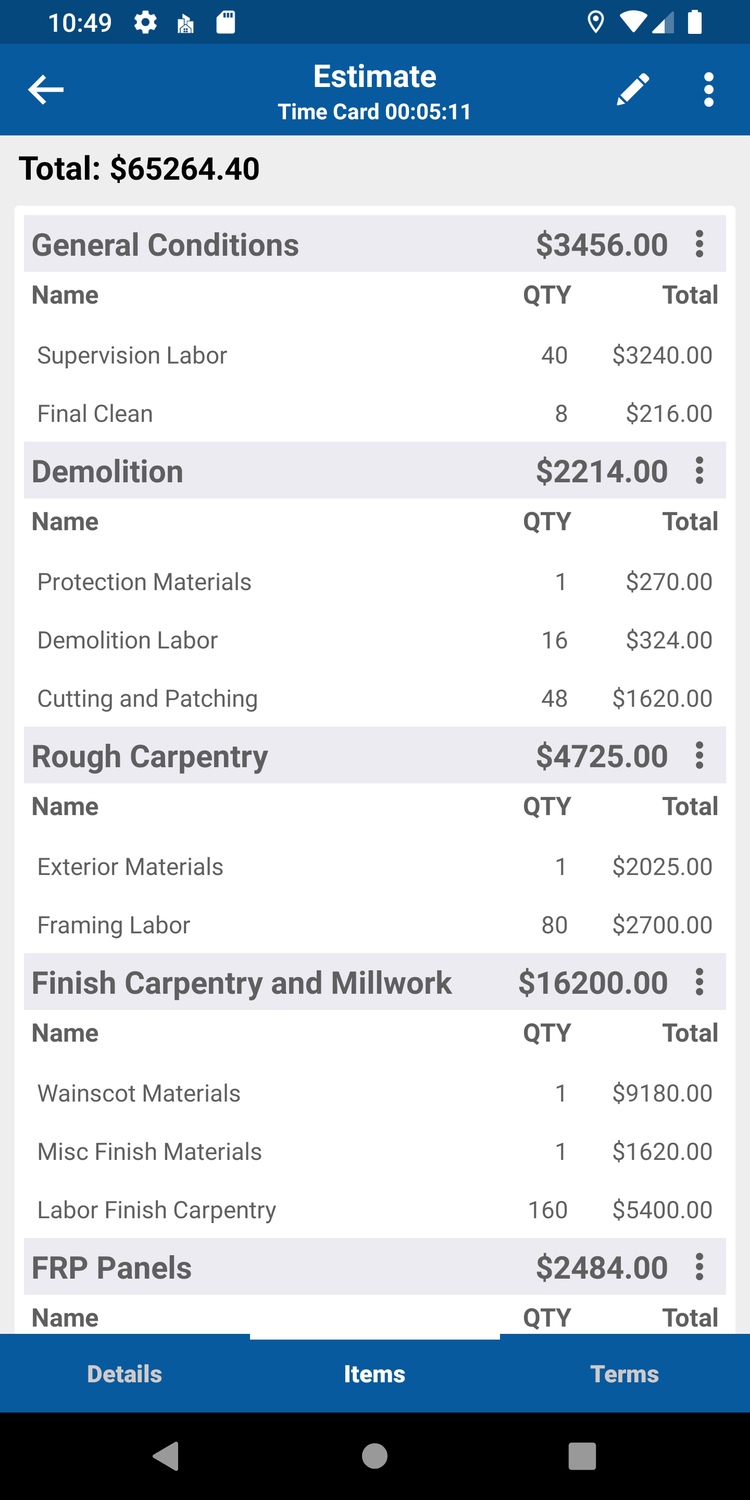
Analytics
What makes for a successful bid process? To answer the question, general contractors are increasingly looking to the analytics tools available in bid management software. Business intelligence capabilities help turn the massive amount of data captured throughout the bid management process into tactical information.
- Bid portfolio tracking: Visibility into the portfolio of upcoming bids is necessary for accurate business planning. Understanding response rates and other key status indicators across the range of bids-in-process provides the data to allocate resources and plan cash flow more accurately.
- Automatic reporting: Saving report templates allows for more efficient monitoring of key bid tracking data and eliminates recreation.
- Bid outreach tracking: There is a direct correlation between the number of bid recipients and the ability to source more aggressive pricing and more qualified subcontractors. Measuring bid invitation outreach efforts provides an opportunity to understand what is working and what isn’t when soliciting bids.
- Visual dashboards: Visual information is often easier to digest. Graphical presentations of bid management data can help executives stay up to speed on bid activity.
- Flexible report exports: While bid management systems attempt to create a comprehensive, all-in-one experience, there can be occasions when data must be exported for further reporting. Most bid management products can export reports in formats like PDF, XLS, and CSV.
Contact Management
Many of the complexities of bid management arise from communicating with many different parties. To minimize this complexity, bid management tools provide an integrated interface for managing bid-related communication.
- Email management: Most bid management suites integrate an email client. The advantage of integrated email clients is better support for tasks like sharing email templates, associating messages with projects, and providing unified message access to multiple bid managers. Integration with Microsoft Exchange and other mail server systems is common.
- Web publishing: Publishing bid solicitations online offers a means of connecting with an expanded audience of subcontractors. Some systems offer an entirely branded and turnkey web presence to contractors interested in publishing bid opportunities. Other software options allow general contractors to add bid solicitations to networks dedicated to bringing together general contractors and subs.
- Contact information tracking: One of the core benefits of a bid management system is the ability to build a searchable database of subcontractors. Customizable contact database fields help bid management professionals store any data they’d like about subcontractors and other contacts in a queryable manner.
- Contact import tools: Importing contact information from Outlook, Excel, and other sources can save time in data entry.
Project Management
While you may not conceive of bid management software as a classic “project management” application, it incorporates many features from the PM playbook. Critical project management-oriented features include:
- Project-oriented organization: Bid management solutions are organized by projects. While each project will be subdivided into biddable tasks, a hierarchical organizational structure with the project at the top level allows for the definition and application of global settings (such as identifying a project scope statement, targeted completion date, or point of contact).
- Job/activity/task definition: Activity, job, or task definitions are utilized to define each biddable unit of the project. Bid level definitions allow for the presentation of relevant specialized information for each job (for instance, pitch and square footage for a roofing job).
- Status tracking: Effectively managing the bid process requires monitoring the completion of various tasks. Status tracking can help monitor project set-up, communication, and contract award conditions.
- Document management: Sourcing subcontractors necessitates sharing files. Document management capabilities offer storage and version control capabilities for project plans, licensing paperwork, and other related documentation.
- Access control: The ability to restrict access to schedules, definitions, and documents lets bid managers share data with varied audiences while maintaining granular control over who sees what.
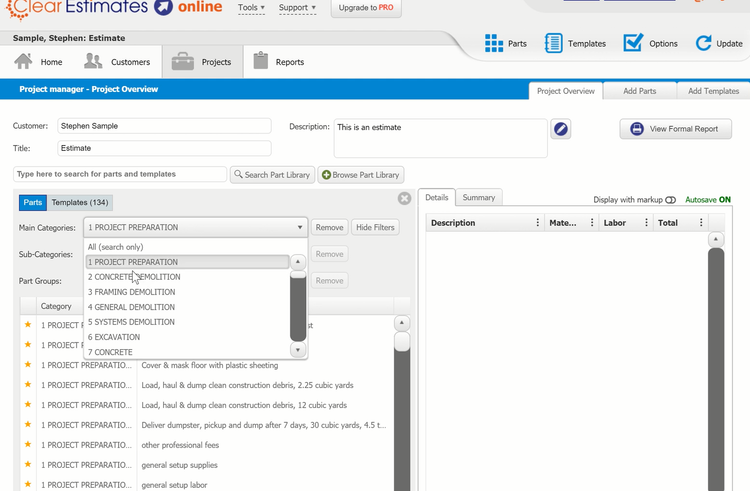
Primary Benefits
Bid invitation management solutions are proving especially popular because they help deliver specific positive outcomes:
- Lower subcontractor pricing. Improved notification processes yield more bid submissions, which increases the likelihood of receiving more aggressive vendor pricing.
- Better subcontractors. The lowest-priced subcontractor is not always the best option. Sourcing more choices also helps general contractors select the most qualified subcontractors.
- Reduced operating costs. Integrated bid management systems are easier to use and require less administrative overhead.
- Improved strategic decision-making. Integrated bid management software solutions provide an opportunity to gather business intelligence data that can be used to make better strategic decisions.
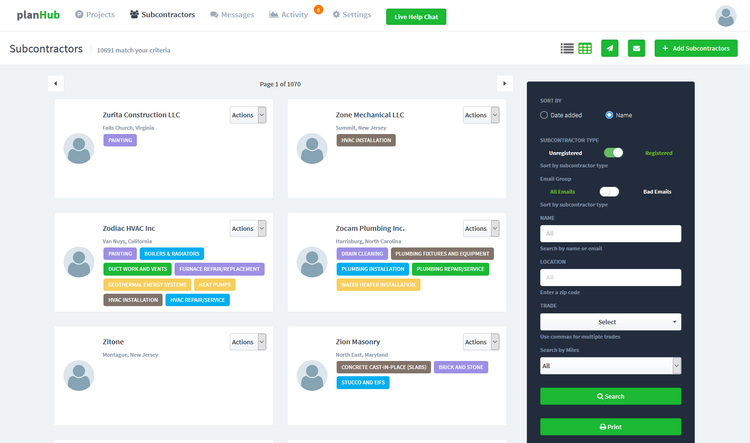
Pricing
Construction bidding software can range from anywhere between $50-$2,000/month. The price depends on several factors, such as the number of users, desired features, and your business’s size.
Some systems like Procore don’t share public pricing, so businesses will receive a customized quote based on the above parameters. However, most systems are priced in tiered packages that increase in price as more features and/or users are added.









































